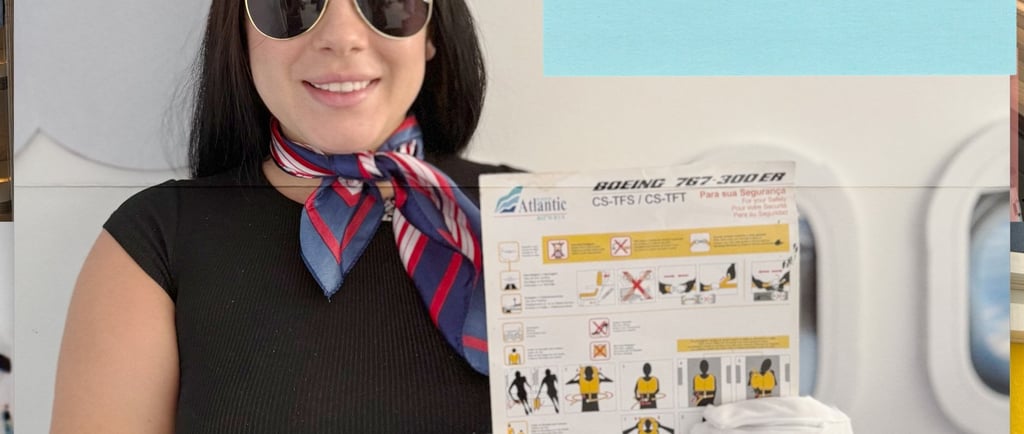Travel is education
Steps to take to prepare a child with autism, to enjoy traveling
Emmanuel Benson
8/12/20253 min read


How to get Autistic Children to Travel with Ease and Confidence
Travelling with a child can typically be challenging, but when the child is on the autism spectrum, the hurdles can feel even higher. Airports, bus and train stations are generally noisy, making the travel experience very uncomfortable for many but especially a kid with sensory processing disorder (common among autism). Likewise, unfamiliar hotel rooms and unpredictable schedules can overwhelm autistic children and parents. The good news, though, is that with the right strategies, families can make travel less stressful and enjoyable. The key lies in preparation, flexibility, and creating a sense of security (predictability) for the child.
Why Travel Can Be Difficult for Autistic Children
It is not discussed enough, but sensory regulation or disregulation affects people with autism. For most, it comes with a heightened need for routine and difficulty adjusting to new environments. Sensitivities such as loud sounds, bright lights, or crowded spaces can be particularly challenging. According to Autism Speaks, travel disruptions often lead to anxiety or meltdowns due to sensory disregulation, which sends signals of heightened anxiety to their bodies. Adding unfamiliar situations without preparation can become traumatic.
Travel also requires constant transitions from home to airport, through long security lines, long waits before boarding onto a plane, and then to a lot of unknown factors when arriving at the new destination. These rapid shifts can be overwhelming for a child who must cope with hourly sensory disregulation to feel safe. Recognising these challenges is the first step toward reducing stress for everyone involved.
Preparing Before the Journey
Preparation at 6Sentidos is the most effective tool parents have at their disposal. Many families find it helpful to create a step-by-step narrative (social story) with pictures that explains what will happen during travel, which they then re-enact at the learning center. A research paper published by Koenig et al. (2009) in the Journal of Autism and Developmental Disorders noted that social stories can significantly reduce anxiety in children by familiarising them with upcoming experiences.
Other practical steps include:
Practice runs: Visit 6Sentidos and use play dressing up as the pilot or passenger, getting to the airport, bus station, or train station in advance if possible. Some airports even offer mock boarding programmes for autistic travellers.
Visual aids, such as timetables, pictorial schedules, or apps designed for autistic children, can help them anticipate transitions.
Pack essentials: Comfort items such as noise-cancelling headphones, weighted blankets, or favourite toys can make unfamiliar environments feel safer, but also to distract from the unpredictable surroundings.
Choosing Autism-Friendly Airlines and Destinations
More travel providers are recognising the need to support families with autistic children. Several airlines and airports are part of the Hidden Disabilities Sunflower Programme, which signals "invisible disability" and that a traveller may need extra time, patience, or support.
Some destinations also offer sensory-friendly accommodations or lounges with quiet hours designed for neurodiverse visitors. Parents can research in advance to identify the most supportive travel environments. At 6Sentidos our team will research these needs ahead of the families' travels.
Managing the Journey
On travel day, flexibility is crucial. Arriving early can reduce the stress of rushing, and parents should inform airline or train staff about their child’s needs. Many staff are trained to offer assistance, from expedited boarding to quieter waiting spaces.
Strategies during the journey include:
Keeping counts: During wait times, choosing familiar meals/foods and singing familiar songs together.
Distraction tools: Tablets with familiar shows, books, or games can keep children engaged during long waits, after fidget toys lose their value. As well body squeezes (on arms and legs) as well as firm head massages.
Safe spaces: Identifying quiet corners in airports or stations ahead of arriving is necessary. Ensuring the child is hydrated and has used the bathroom before departure is key. In case of overstimulation, drink ice water, or bite into an apple; chewing gum is also another technique.
After Arrival
Before arrival, reading and discussing social stories is very useful. Hotels or relatives’ homes can feel overwhelming to autistic children because of smells and visual discomfort.. Parents can ease this transition by unpacking their favourite items first, using essential oils in a small container, and discussing new activities before initiating them. For some, showing the timing and routes is useful
Planning downtime is just as important as sightseeing. Children benefit from moments of rest where they can recalibrate before the next outing (it is helpful to increase time out of "hotel" over the days). Families who balance exploration with predictability often find that their children adapt more quickly. Ensure that the plans include some special interests of the child, such as visiting the zoo, aquarium, or museum.
Building Positive Memories
Although traveling with autistic children requires extra effort, it also brings unique rewards. Many parents report that their children develop resilience, social awareness, and new coping skills through these experiences. Moreover, shared travel memories, whether a walk on a quiet beach or exploring a cultural site, strengthen family bonds.
The ultimate goal is not perfection but creating a journey that works for the child and family. With thoughtful planning, flexibility, and support from inclusive travel providers, families can give their children the gift of exploration without undue stress. Call us at 6Sentidos, to prepare your upcoming trip.
Apoio
Capacitando crianças autistas para um futuro melhor.
Aprenda
crescer
info@Tutors4SEN.com
+351-916527511
© 2025. All rights reserved.
